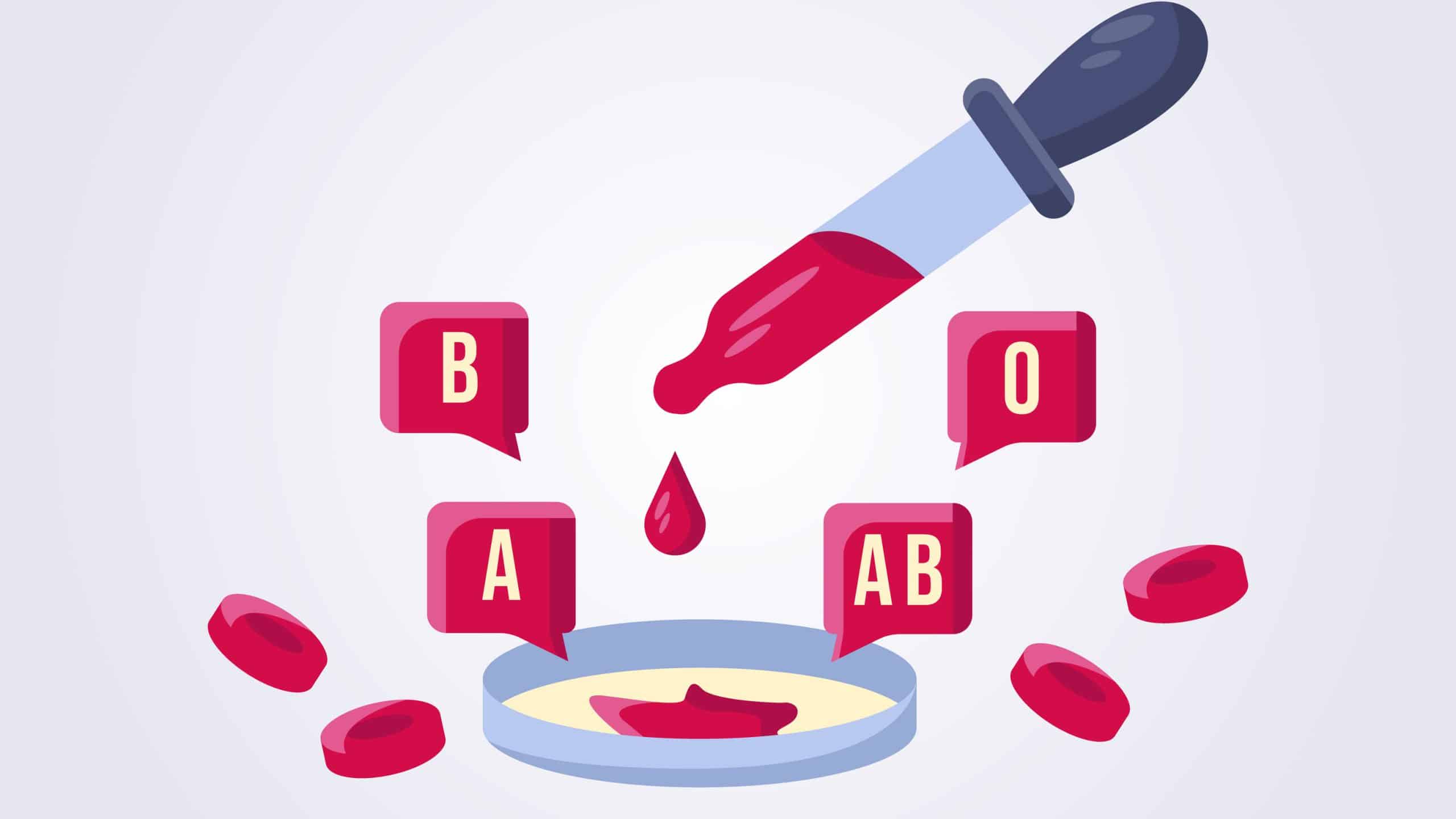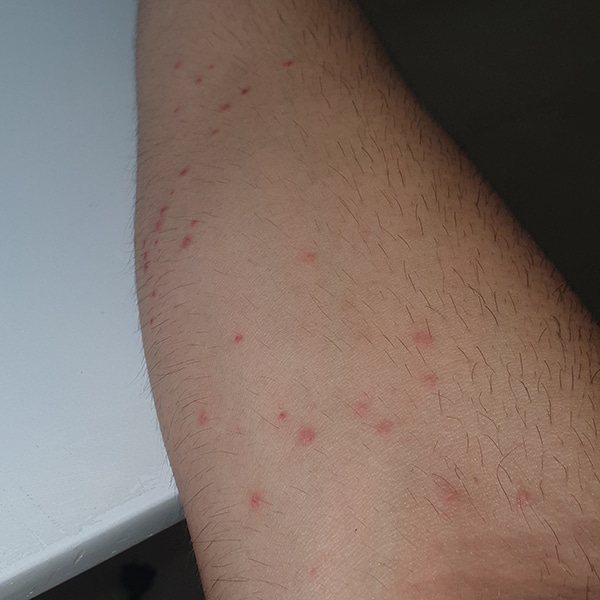
In the article
Last Updated on 15/04/2025 by Tony Abrahams
Ever feel like you’re always the one getting bitten, even when others in the room escape untouched? You’re not imagining things—and you’re definitely not alone. One of the most searched questions about bed bugs is: Do bed bugs have a favourite blood type?
It sounds like a strange question, but it’s actually rooted in real science. And if you’re sick of being the main course on the bed bug buffet, this blog will answer the big question and give you tools to make yourself less appealing.
Let’s break it down with hard facts, myth-busting, and some practical advice that actually works.
Do Bed Bugs Prefer Certain Blood Types?
Yep, they might. But the real answer is a bit more nuanced.
A 2008 study from the University of Nebraska gave researchers a chance to test whether bed bugs showed preference when offered a buffet of blood types through artificial feeders. The result? Bed bugs seemed to gravitate toward Type O blood more often than Type A.
That’s not to say Type O is doomed. But it does show that bed bugs can detect subtle differences in the blood and may use that when making their creepy little dinner choices.
Still, these tests were done in a lab, not a bedroom. And in the real world, a lot more is going on. You’ve got body heat, CO₂, sweat, movement, even what you’ve eaten. So while blood type might play a role, it’s not the main reason they choose who to bite.

Do Bed Bugs Have a Favourite Blood Type?
Is There Scientific Proof Behind Blood Type Preference?
The research is interesting, but far from conclusive.
Most entomologists agree that bed bugs don’t actually know your blood type until they start feeding. They don’t sample the air for Type A or Type O like a vampire sommelier. Instead, they likely respond to chemical cues on your skin, possibly tied to your blood type’s markers or secretions in sweat.
These cues can act like a calling card. People who secrete antigens related to their blood type in their sweat (called “secretors”) may be more noticeable to bed bugs. But that’s just one theory—and it’s still being studied.
At the end of the day, bed bugs are lazy feeders. They go for the easiest target. That means someone who’s sleeping still, giving off lots of body heat and CO₂, and who doesn’t have a physical barrier like clothes or sheets between their skin and the bug.
What Really Attracts Bed Bugs? (Hint: It’s Not Just Blood)
While blood is the ultimate prize, bed bugs use a bunch of other signals to find you. Here’s what draws them in:
- Carbon Dioxide (CO₂): You exhale it constantly while sleeping, and bed bugs use it like a GPS to hone in on your position.
- Body Heat: You’re a heat source in a dark, quiet room—exactly what bed bugs want. They follow thermal gradients directly to your skin.
- Sweat and Skin Odour: The bacteria on your skin creates smells that bed bugs pick up on. Even subtle changes in your body chemistry can make you more or less attractive.
- Movement Patterns: People who sleep like a log are easier targets than those who toss and turn.
- Sleeping Habits: Bed bugs are nocturnal. They’re most active between 2 AM and 5 AM, just when you’re in your deepest sleep.
So yes, blood type might influence things slightly. But even if you’re Type AB, if you’re sweating like crazy and pumping out heat and CO₂, you’re basically a flashing neon sign for bed bugs.

couple sleeping
Can You Prevent Bites If You Have a “Favourite” Blood Type?
If you suspect bed bugs love your blood type, don’t panic. You can take action—because prevention is 100% more effective than hoping they’ll just ignore you.
Here’s what actually works:
- Isolate your bed. Move it 30cm away from all walls, furniture, and curtains. That stops bed bugs from climbing up via anything but the bed legs.
- Install Bed Bug Barrier Traps under each leg. Our traps are designed to let bugs crawl in—but they’re coated in Diatomaceous Earth (DE) that kills them slowly by drying them out.
- Use mattress and ensemble base covers. This removes hiding spots and stops bugs from nesting inside your bedding.
- Steam your bedframe and floor edges. Bed bugs die instantly when exposed to steam over 120°C—so a handheld steamer is a killer weapon.
- Dust your bedframe and base with Diatomaceous Earth. Bed Bug Killer powder gives you long-term protection. Even if bed bugs reappear weeks later, they’ll walk through the powder and die before they get to you.
It’s not about changing your blood—it’s about cutting off their access to it. When done right, this creates an environment where bed bugs cannot feed, reproduce, or survive. No food = no infestation.
Why Do Some People Get Bitten and Others Don’t?
This is one of the most frustrating parts of dealing with bed bugs. Two people, one bed—only one gets bitten. Or so it seems.
Here’s the deal:
- Up to 30% of people don’t react to bites at all. That means they might be getting bitten just as often, but show zero signs.
- The bed bugs might just be closer to you. If you sleep near the wall or under a crack in the skirting board, you’re an easier target.
- Your sleepwear matters. If you sleep in shorts while your partner wears long pants and sleeves, guess who’s easier to bite?
- Bugs prefer still sleepers. If you move a lot, bed bugs might avoid you because it’s harder for them to feed.
In other words, it’s not always about your blood type—it’s about accessibility, positioning, and body response.

Bed Bug Bites in Australia
Final Thoughts: Are You a Bed Bug Favourite?
So, do bed bugs have a favourite blood type? The science says maybe—Type O might be a top pick—but in reality, it’s just one piece of a much bigger puzzle.
Here’s what really matters:
- How easy you are to find (CO₂ and body heat)
- How accessible your skin is (clothes, covers, bed setup)
- How well your bedroom is protected (isolation, traps, powder)
If you’re getting bitten, don’t waste time blaming your DNA. Instead, focus on creating an environment that bed bugs can’t survive in.
And that’s exactly what our Isolation Method is built for—turning your bed into a fortress that kills every bed bug in the room while you sleep soundly through the night.
Want to Stop Being the Bed Bug Buffet?
✅ Learn How Our System Works
✅ Shop Now for Long-Term Bed Bug Protection
🔍 Related Articles:
Frequently Asked Questions: Do Bed Bugs Have a Favourite Blood Type?
- If I have Type O blood, does that mean I’ll always get bitten more?
Answer:
Not necessarily. While some studies show a slight preference for Type O blood, bed bugs aren’t picky eaters. What matters more is how easy you are to reach. If you’re giving off more heat and CO₂, sleeping near cracks in the wall, or wearing minimal clothes, you’re more likely to be bitten—regardless of your blood type. So even if you’re Type O, isolating your bed and using bed bug traps can keep you bite-free. - Can bed bugs smell my blood type before biting me?
Answer:
Kind of—but not directly. Bed bugs don’t have a “blood type radar.” What they might be detecting are chemical markers on your skin or in your sweat that correlate with your blood type. Some people are “secretors,” meaning they release blood-type-related antigens through their sweat, which could potentially make them easier for bed bugs to find. But again, body heat and carbon dioxide are still their biggest clues. - Why does my partner never get bitten, even though we sleep in the same bed?
Answer:
It’s one of the most common complaints—and it’s not always about blood type. The truth is, your partner might be getting bitten but simply not reacting. Up to 30% of people show no visible signs of bed bug bites. Plus, factors like where you sleep on the bed, how much you move, or even what you’re wearing at night can all influence who gets targeted more.
Are You Looking for a Fast & Forever DIY Treatment?
Watch Our DIY Treatment Video For An Ensemble Bed
Watch Our DIY Treatment Video For A Bed with Slats
If you have enjoyed our blog, Do Bed Bugs Have a Favourite Blood Type?, then you might like to read about Bed Bug Bites.



Leave a Reply